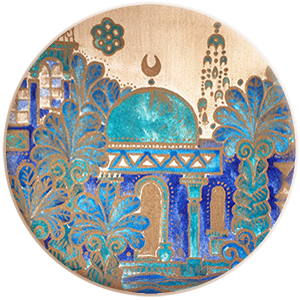MONDAY 21 SEPTEMBER 7 p.m.
PRESENTATION OF THE FILM AND READING KLAUS DEMUS
ALTE SCHMIEDE
Schönlaterngasse 9
1010 Wien
You can watch via Livestream. Link dor Online-Screening:
https://www.youtube.com/watch?v=WX8RTZAWfQA
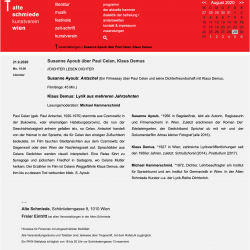
45 Min. Original German Version.
By Susanne Ayoub (Director+Screenplay+Camera).
with Klaus Demus (narrator)
and Katharina Knap (spoken word).
Translations exist in English, French, Ukrainian, and Romanian
Paul Celan was from the Bukovina, “the former Habsburg province that has now fallen victim to the loss of history,” as he put it. He was born in 1920 in Czernowitz (Chernivtsi) to a German-speaking Jewish family. The locales of his childhood no longer existed after the Nazi terror. His family was murdered, and he himself was persecuted and imprisoned in a work camp. He escaped death only by good fortune.
“There was this one thing amidst the losses that remained attainable, nearby, not lost: language.”
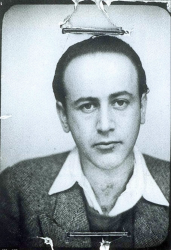
“Antschel” deals with a homeland in language, the language that was Paul Celan’s only place of refuge.
The film is a “landscape film.” City views—pictures from the past—turn up again in present-day Czernowitz. A trip to Sadagora, where Celan’s mother was from, leads to the synagogue and the Jewish cemetery.
Celan’s path through postwar Vienna. His identity card as a Jewish refugee.
“I didn’t stay long. I didn’t find what I had hoped to find.”
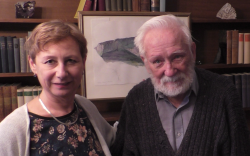
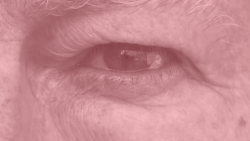
The narrator of the film is Klaus Demus, now 93 years old. He met Celan through Ingeborg Bachmann in Vienna and stayed connected to him for a lifetime.
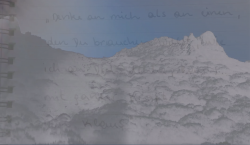
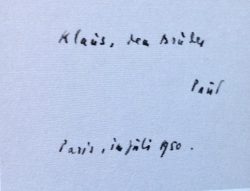
“The only way you can understand poetry is poetically. If you ask what it really means, you haven’t understood what poetry is. Because what it really means is probably ineffable.”
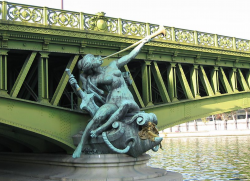
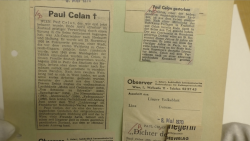
In 1970, after years of serious mental crises, Paul Celan drowned himself in the Seine.
Translation Geoffrey Howes
